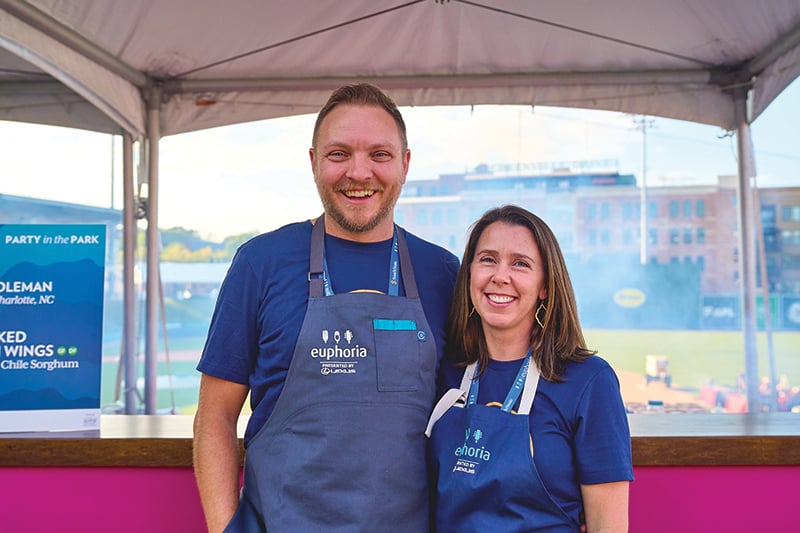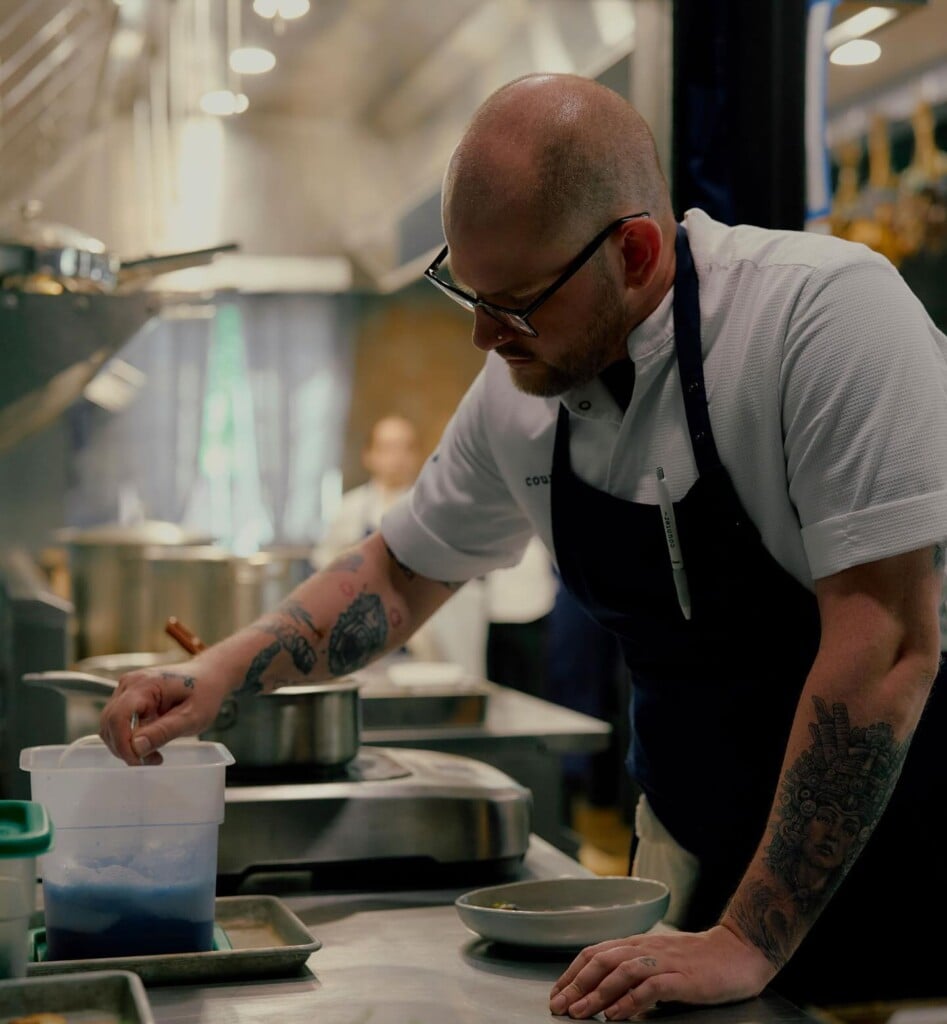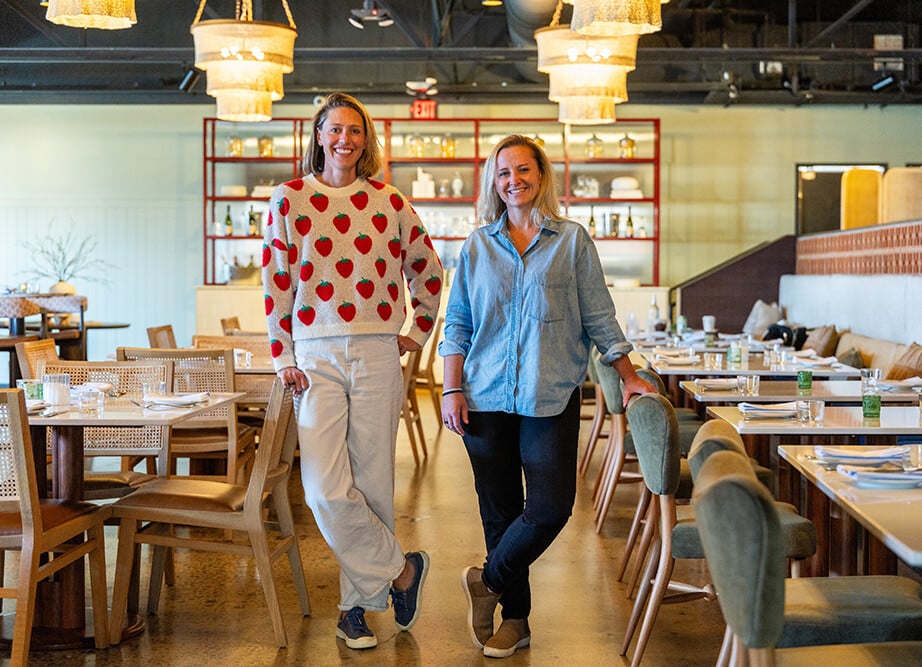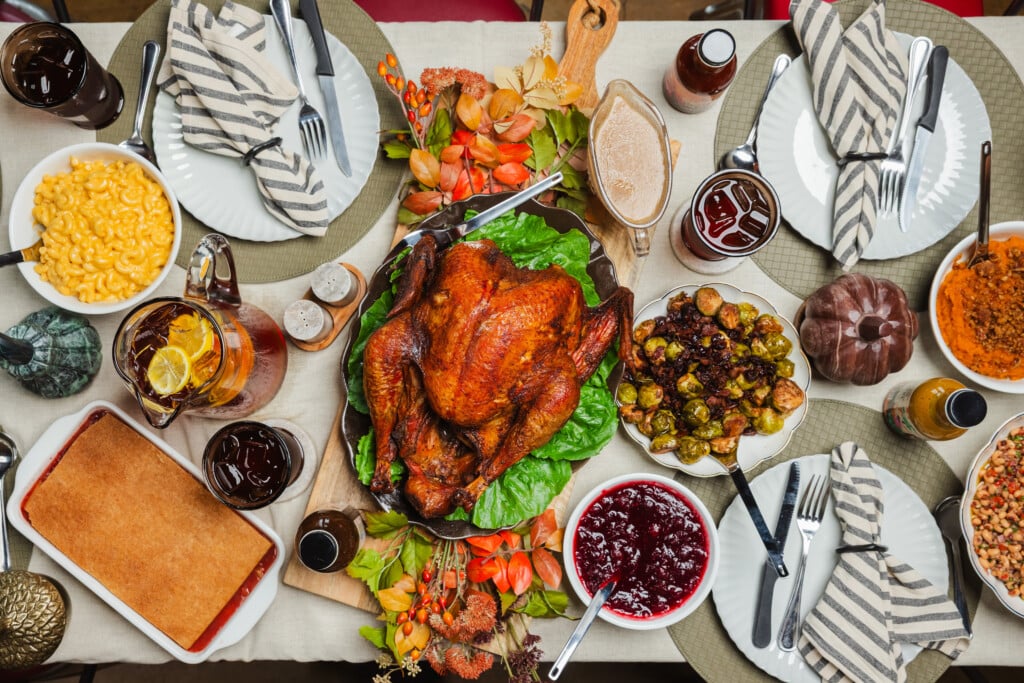Do Chefs Need to Get Out of the Kitchen?
Chefs face the pressure to double as marketing pros to succeed in their media-driven world

The first time I met Chris Coleman, he wielded a 1-pound doughnut for our editorial team to sample. As director of culinary experience at Charlotte Marriott City Center, he invited us to try the supersized dessert at Stoke, his restaurant inside the uptown hotel. (I’m proud to report we crushed the entire thing.)
A month later, Coleman left to open The Goodyear House. I saw him at the grand opening, where he greeted guests and worked the dining room. Over the last four years, I’ve seen him at various food festivals and events in and around Charlotte. He’s gone on to open two more restaurants, beat Bobby Flay, and become a Chopped champion. He’s also an inaugural member and founding board member of Piedmont Culinary Guild. For someone who honed his craft in the kitchen, he certainly seems to spend a lot of time outside of it.
It got me wondering: How much responsibility falls on chefs to market themselves and cultivate their brands? Has this become an unwritten part of the job description?
It depends, of course. Chefs aren’t required to do promotional tours on behalf of their restaurants or themselves. But a growing number of chefs, like Coleman, are taking advantage of a media world that increasingly embraces the model of chef-as-star—thanks to a combination of factors like social media, Food Network, and a rise in foodie-culture festivals in which the people who prepare the dishes draw as much attention, perhaps more, than the dishes they prepare.
When he began as a line cook at the McNinch House, Coleman says his role was “just keeping my head down and cooking every day.” But once he became executive chef—at 21!—local media took notice, and he grew more aware of the power of branding.
After he left to open The Asbury, a farm-to-fork restaurant at The Dunhill Hotel, he says the management team encouraged him to be the face of the restaurant. Luckily, that came naturally to him. “I was always the talkative one in class,” he says. “Teachers had to tell me to stop being so friendly to everyone.”
But as Coleman spent more time outside the kitchen, he realized that his inclination to chat and interact with whoever he met was a powerful marketing tool, a way to grow the business that in its own way was as valuable as meal prep. “I think being active in the food community is incredibly important,” he says. “We preach that to everyone now in hospitality, down to the line cooks. As an executive chef in a city like Charlotte that’s growing so fast, you can get swept up or forgotten about, so having that brand is important. It’s part of the job nowadays.”
When we speak in early September, Coleman is preparing to reopen Haymaker, the uptown farm-to-table restaurant he purchased from acclaimed chef William Dissen in July. He isn’t in the kitchen chopping, sauteing, and plating, though. He’s there to tweak menus, order ingredients, and train his staff.
He needs a strong culinary team in place, and not just because it keeps his restaurants running smoothly. It allows him to disappear for a few days to events like Charleston Wine + Food or appear on Guy’s Grocery Games. When Food Network calls, though, Coleman usually tells his staff he’s taking a few days off or going to New York or California for “research and development.” (He’s required to sign an NDA that prevents him from divulging anything he’s filmed until a few days before the episode airs.)
“People who’ve seen a show or read an article and decide to eat here because I’m the guy who beat Bobby Flay. … That’s a very cool thing,” he says. “Every time I get regional or national publicity, I always make a point to say I’m representing Charlotte. A lot of us in the industry feel like the dining scene has gotten overlooked here, so shining a light on Charlotte is important.”
Coleman rarely spends late nights in the kitchen anymore, and it’s been a while since he’s made any 1-pound doughnuts. But he still considers himself a chef first. It’s why he continues to do events like euphoria, the four-day food, wine, and music festival held in Greenville, South Carolina, every September. “It’s a chance to cook and show off a little bit,” he says. “These things give me a creative outlet to flex that culinary muscle.”
TAYLOR BOWLER is the lifestyle editor.





